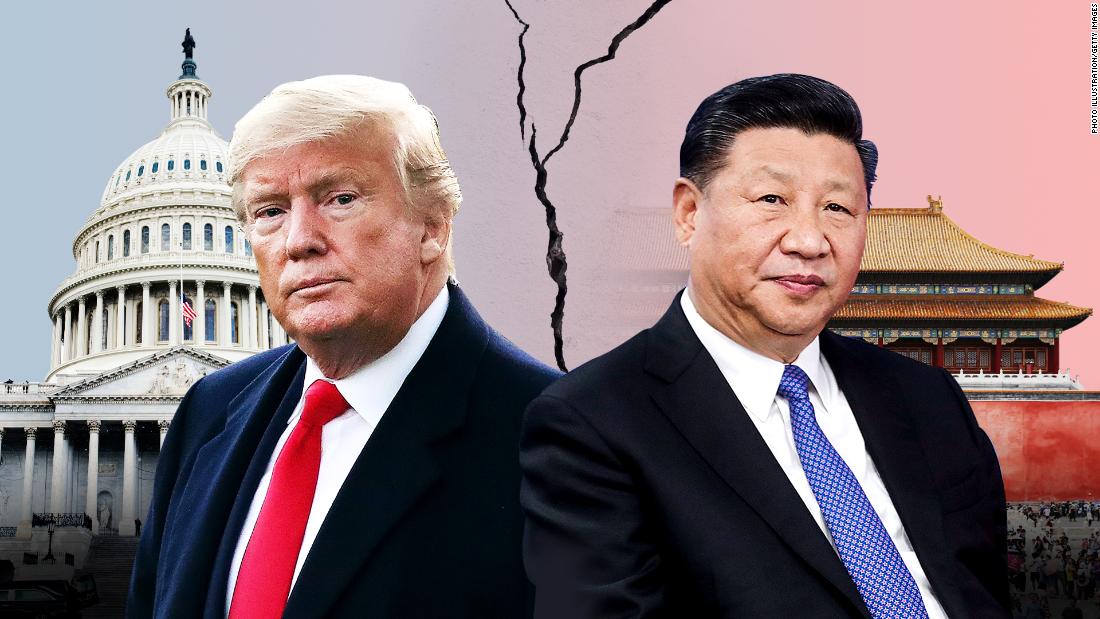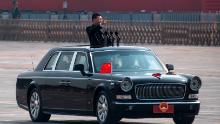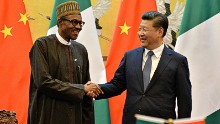China has been criticized at home and abroad for managing the virus, particularly during the initial outbreak. Rejecting such criticism with increasingly fierce rhetoric, Beijing claims it is simply “responding” to false accusations, particularly from the United States.
“Lowest point” for decades
The dramatic deterioration in relations follows the two-year trade war between the two major economies of the world: a trade war that had already pushed tensions to new heights and spurred on to talk about decoupling.
However, while Trump’s approach to China isn’t necessarily new, the situation he faces is “much more dramatic and dangerous,” said David Zweig, an emeritus professor at the University of Science and Technology in Hong Kong and director of Transnational China Consulting Limited.
“The stakes are much higher,” said Zweig. “In 2016 it was people’s work. In 2020, it’s people’s lives.”
First discovered in the Chinese city of Wuhan last December, the coronavirus spread far beyond the country’s borders, infecting 3.9 million people and killing at least 276,000 worldwide.
The Chinese government has questioned the origins of the pandemic, arguing that the first cases may not have occurred in Wuhan.
Shi Yinhong, a Chinese government adviser and professor of international relations at Renmin University of China, said that US-China relations have “reached the lowest point since 1972” when former US President Richard Nixon made the his historic visit to Beijing to normalize bilateral relations with China, which for years had been diplomatically isolated from the West.
“Since the beginning of 2018, China-US relations have already entered a state of global competition and rivalry. However, relations have suffered a major blow since the pandemic,” Shi said.
The rivalry and antagonism between the two countries has now extended to trade, technology, geopolitics and political ideology, and the signs of decoupling are also expanding under the pandemic as blockade measures halt flights. international travel and global supply chains, Shi said.
Rising nationalism
Likewise, in China, nationalism and anti-foreign sentiment are very high. Backed by media and state officials, there is also a growing sense of bitterness that the Chinese, especially the people of Wuhan, have made huge sacrifices to contain the virus and have suffered great losses, but their country is still criticized for not have done enough – – and take the blame for the inadequate response of other governments to manage the pandemic.
“It is very clear when there is external hostility towards China, people tend to become more nationalist. And the Party (Chinese Communist) plays with it,” said Zweig.
“People feel that the Chinese ethnic group is under attack. They become very defensive. And it makes it very difficult to speak with more rational voices.”
Economic growth and nationalism have been the two sources of political legitimacy of the Chinese Communist Party for decades. The country’s economy has suffered a major blow since the outbreak of the coronavirus, contracting 6.8% in the first quarter of this year – the worst drop since quarterly records began in 1992. And with economic growth more difficult to argue that never, the party is likely to turn even more to nationalism to consolidate its hold on power.
As the number of new infections dropped in China and increased overseas, state-run media outlets propagated China’s success in defeating the virus, highlighting other governments’ failures to curb its spread – particularly the United States.
On April 30, the Chinese state-run news agency Xinhua released an animated video featuring Lego-like figures who mocked the U.S. response to the pandemic. It has been viewed 2 million times on Twitter.
Last week, Chinese President Xi Jinping gave a speech to the country’s youth on the occasion of the 101st anniversary of the May 4th Movement, a student-led political movement sparked by angry protests against the government’s inability to stop the aggression. foreign and defend the interests of China. He later grew into wider demands for modernity, democracy and science.
In his speech, Xi praised the youth for their part in the fight against the coronavirus epidemic and urged them to “work hard for the Chinese dream of national rejuvenation,” said state-run CCTV station.
Under Xi’s vision of the “Chinese dream” and the push for “national rejuvenation”, Beijing has become increasingly assertive in its foreign policy, eager to project its influence into the world and firmly defend its “main” national interests, including the disputed territorial claims. This approach has already sparked criticism at home and abroad for the alienation of the United States and other members of the international community.
International game
Under the pandemic, Beijing is in the midst of a growing global backlash that extends far beyond the United States.
Shi, the Chinese government’s adviser, said some Western powers have aligned themselves with the United States for accusing China of allegedly mistreating the outbreak – and this is a serious foreign relations problem for Beijing.
“From China’s perspective, this is closely tied to the prestige of the Chinese regime and potential stability,” he said.
In addition to state media, China has sought to defend its image through diplomatic envoys. Known as the “wolf warrior” diplomacy, it refers to a popular series of Chinese action films in which the country’s army carries out bold operations around the world. However, the increasingly combative tone of some Chinese diplomats has fueled tensions and sparked criticism.
“Even if after the pandemic has passed, these problems will remain. At that point they may be less emotionally charged, but they will still be there,” Shi said.
“The memory (of the pandemic and its devastation) is so deep that I fear (the scars) will remain in the hearts of an entire generation.”
CNN’s Vivian Salama, Jeremy Diamond, Kevin Liptak, Kylie Atwood and Stephen Collinson contributed to this report.

Coffee enthusiast. Travel scholar. Infuriatingly humble zombie fanatic. Thinker. Professional twitter evangelist.











